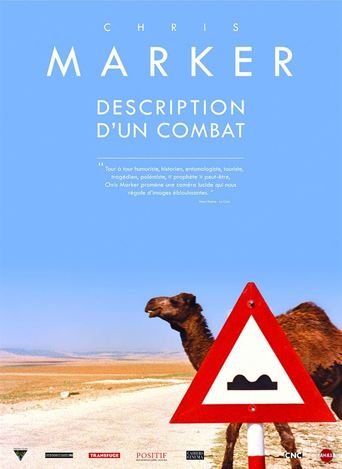eyal philippsborn
First of all, a disclosure. As you can probably tell from the user info, I am an Israeli and no matter how hard I try, there is no way i'll review this title through purely objective eyes. The good news are that the reality perpetuated in the movie and reviewed here, doesn't exist anymore. What was Israel in 1960, you ask? It was a country basking in the warmth of stability after a decade long era of wars that pre-dated Israel itself. social oriented communities called Kibbutz were in their golden age and harvested many of Israel's future key figures; Agriculture was Israel's main export and so was the feeling of redemption of the never redeemed wrong of the holocaust. Chris Marker, traveled the length and breadth for a month to capture the faces that tell the stories and the message these stories carry. He wondered through the culture center of Haifa, the hangout for intellectuals and photographed the droves of north-African immigrants' parade for Rabbi Meir, an apparently formidable (I am highly secular, mind you) Rabbi who is buried near the sea of Galilee. Marker canvassed the than virgin shores of Eilat who would later become a highly thriving and grotesquely commercial city and depicted the poor kids of Haifa who find themselves as part of the workforce. You might wonder if these sporadic scenes carry any message. They do and Marker stresses it. Israel is the country who was born from the wrong doing of several nations. One name appears on the top of my head as it does in yours, I'm sure but Marker notes that Great Britain took the grief stricken refugees and locked them in concentration camps in Cyprus. Marker states (via narrator) that "Israel can't afford not to be right". Not because Israelis are error-free humans but because it exists solely as a safety net of for Jews that might feel threatened by countries that are now or will be wrong.The movie is touching to the Israeli and provides a time capsule of a bygone era. Era where Naivity was considered noble. The movie suffers from melodramatic approach and doesn't address inter-racial tension but otherwise, it's very compelling and engrossing.One last thing, some might wonder how is the Palestinian plight debated in the film. It's not. Mainly because there were no Palestinian groups at 1960 (PLO was formed in 1963) and more importantly because it was peace time and those who could profit from it, regardless of creed, have.Could the movie appeal to those who never set foot in Israel? the top prize it picked on Berlin festival of 1961 indicates that it might. Can it be a mirror of modern day Israel? god, no.9 out of 10 in my FilmOmeter
allenrogerj
Watching Chris Marker's 1960 documentary about Israel now is curious- what he noticed and what he missed, the things which are no longer important and the things he ignored that concern us now, what he got right and what he didn't. Then Israel was a regional David, surrounded by apparently stronger enemies, now it is the superpower of the region. Then the kibbutz were worth looking at for a long time, though Marker's view is sceptical and ironic and he thought they might become less significant in the future. Marker's Israel is still an agricultural land, with horses and carts delivering food to market. Marker concentrates on the European founders and almost ignores the "oriental" Jews driven from Arab countries. He looks at an Arab family in Nazareth and at Bedouin discussing the virtues of their horses but pays no attention to the Palestinian refugees. There are extraordinary shots- a crop-dusting 'plane, an Arab boy riding his delivery trolley downhill, accompanied by a patronising and arrogant commentary. indeed, that is one big problem: what might be profound and philosophical in French is pretentious and phony in an English translation.

